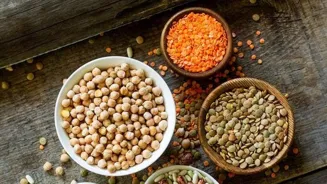Unraveling the Mysteries: Truth About Indian Spices & Benefits. Discover the magic & facts behind these aromatic wonders
For centuries, Indian spices have been more than just flavour enhancers; they've
been integral to our culture, traditions, and holistic well-being. Passed down through generations, these aromatic wonders are often shrouded in folklore and, sometimes, misconceptions.
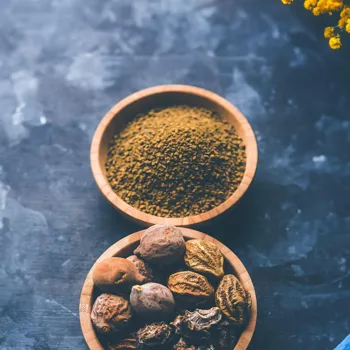
It's time we shed light on these myths and uncover the actual benefits that these spices offer, backed by both ancient wisdom and modern science. From the humble turmeric to the fragrant cardamom, let’s embark on a journey to understand the reality behind the magic of Indian spices.
Many believe that the intense flavours are only for taste, overlooking the health benefits; we will elaborate more here about its benefits.
Consuming spices for health not instant cure, balance is key
One pervasive myth surrounds the idea that consuming spices equates to instant health benefits. While spices indeed possess potent medicinal properties, they are not a magic cure-all.
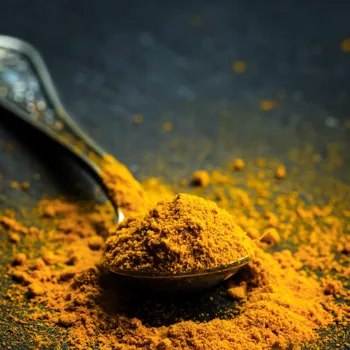
Turmeric, celebrated for its anti-inflammatory properties due to curcumin, doesn't instantaneously eliminate inflammation with a single pinch. The positive effects of spices are usually gradual, unfolding best with consistent and proper usage as part of balanced diet.
Also, some assume that more spices result in increased profits. However, balance is important, excessive use can be harmful and can overpower the taste.
Misconception about spices and digestion; some aid, others may cause issues
Another general misconception involves spices and digestive health. Many believe that spices invariably cause acidity and heartburn. While it's true that some individuals may experience such issues with certain spices like red chilli powder or garam masala, spice sensitivity varies greatly.
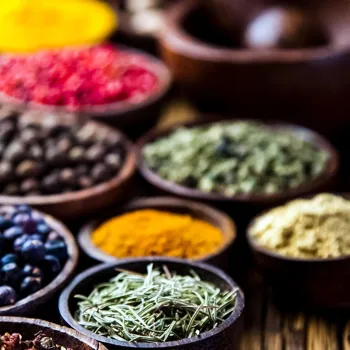
In reality, many spices like ginger, cumin, and asafoetida actually aid digestion. They stimulate digestive enzymes and reduce bloating. Similarly, just like other food products, you need to be conscious of allergens.
Some people are allergic to a certain spice, so always start with a reasonable consumption measure to ensure that you are safe.
Ayurveda categorizes spices as 'heating' or 'cooling' for body balance
The belief that all spices are "hot" in nature is also incorrect. In Ayurveda, spices are categorized based on their 'heating' and 'cooling' properties. Spices such as cinnamon, ginger, and cloves are considered heating, potentially increasing body temperature.
Spices like coriander, mint, and fennel are believed to have cooling effects, helping lower body heat. So, choosing spices that are right for your body is important. This is not to say that people should consume spices outside of recommended measures.
In fact, you can always have them with your regular meal to ensure that you are not taking too much of it.
Spices' freshness and quality matter most, not cost or location
Several people think that spices are best bought from the most fancy location or the ones that costs a premium. However, that is not always the truth. What you need to look out for is the freshness and quality. Look for spices that have a vibrant aroma.
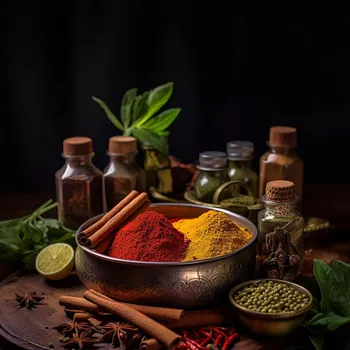
Buy whole spices and grind them yourself for best results, as pre-ground spices tend to lose their potency faster. Store spices in airtight containers away from sunlight and heat to retain their flavor and medicinal properties.
Ensure that it does not have mold or any other foreign particle for the best experience.
Spices beneficial for kids if used cautiously under guidance
The misconception that spices are only for adults needs clarification. While it is crucial to introduce spices to children cautiously, in moderate amounts, certain spices can benefit kids' health.
For instance, a tiny pinch of turmeric in milk can boost their immunity, and a dash of cumin in their food can improve digestion.
But before incorporating spices into children's diets, consulting a pediatrician is key to gauge their safety and appropriate use, particularly considering individual allergenic and health profiles especially for babies. Parents also need to avoid spices of overly spicy levels for children.
Spices have health benefits but not a substitute for medical treatment
Often, people falsely assume they know which spice can cure an ailment, and then self-medicate. While spices have amazing health properties, they do not replace proper medical treatment. If you are unwell, please see a doctor to get proper treatment.
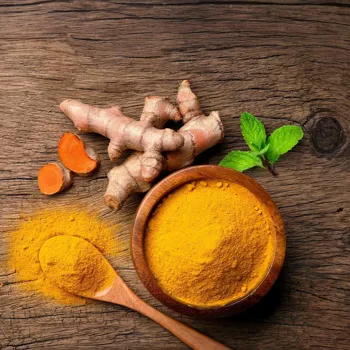
If you are already under medical treatment, please consult your doctor before including different quantities of spices into your diet. This is especially important for pregnant women and breast feeding mothers who need to be extra cautious with their diet.
It is also good practice to buy organic spices.
Explore Indian spices wisely for health and flavor, with awareness
In conclusion, the world of Indian spices is a treasure trove of health and flavour, but it is crucial to approach it with awareness and discernment.
By dispelling the myths and focusing on the facts, we can responsibly harness the immense potential of these spices, incorporating them wisely into our diets and reaping their genuine benefits for overall well-being.
So, let's celebrate the vibrant tapestry of Indian spices, armed with knowledge and a pinch of caution. As with everything, the key is moderation and awareness. Explore the world of spices, not for their magic, but for their authentic value.
